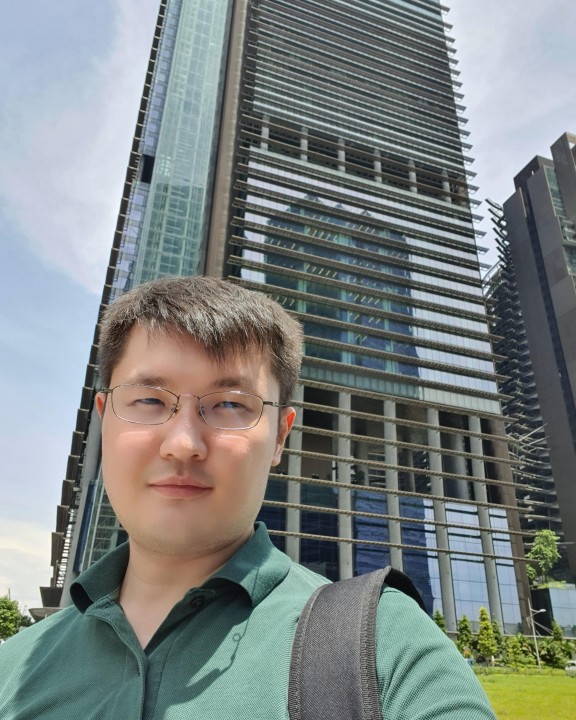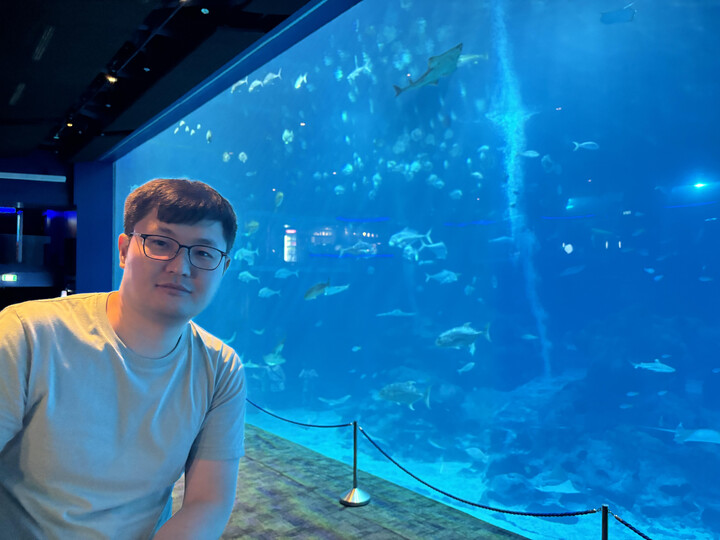In this article we spoke with young professionals from Central Asia who work at JPMorgan Chase — a multinational financial company.
Arman Ilyassov, 37 years old, city — Singapore, Software Engineer, linkedin

About me and the company
I work at JPMorgan Chase in Singapore — the largest bank in the U.S. and one of the world’s leading financial institutions.
Since 2022, I’ve held the position of Associate Software Engineer in the Asset & Wealth Management division, specifically in international taxation. AWM’s clients are high-net-worth individuals with assets starting from $10 million and above. My main responsibility is developing software solutions that help JPMorgan Chase clients comply with the tax laws of various countries.
I build applications for tax calculation and payment preparation to tax authorities. My work includes automating reporting and withholding processes in compliance with regulations such as FATCA, CRS, and national tax authorities across different countries.
At JPMorgan, employee performance is evaluated in three areas: business, clients, and leadership. Business-wise, it's important to deliver quality results. For example, I participated in implementing automated tax calculations for Belgium and was responsible for features and technical discussions. In stakeholder engagement, communication and problem-solving are crucial — I configured Grafana to visualize business data and conducted demos for client-facing teams. As for leadership, I led a team of nine during a photo shoot for the PowerUp 2025 event in Singapore and take part in organizing Day in the Life sessions, where employees get to know different teams within the company.
Career path
I was contacted via LinkedIn. An HR representative from JPMorgan Chase sent a message suggesting I apply for an open position. I went through several stages of the hiring process: a phone call, an interview with three algorithmic questions and technical knowledge checks, a technical round with a team lead, and finally a behavioral interview with an Executive Director.
At my very first job, I was asked to leave due to insufficient skill levels. After that, I spent six months studying intensively — I learned Java and developed productive habits. Communication was another challenge — sometimes my ideas weren't fully delivered. Now, I work on improving this skill every day.
During the JPMorgan interview, I was able to answer most of the questions correctly and even corrected the interviewer once. At that time, I was already working at DBS, a Singaporean bank, which gave me confidence since I had hands-on experience with the relevant tech stack.
Adaptation
Adapting was relatively easy. Working at DBS and other fintech companies, I learned that results matter more than using "trendy" technologies.
In my team, some employees consistently finish their workday by 6:30 p.m. However, it really depends on workload and career goals. In some cases, working hours can be longer.
The company offers 24 days of annual leave and six days of childcare leave. We also have 16 weeks of paid parental leave. Additionally, you can contribute $100 a year to increase insurance coverage to SGD 20 000 — roughly the cost of childbirth-related expenses in Singapore.

I’ve conducted interviews at JPMorgan and noticed a few common mistakes: lack of preparation, weak technical knowledge, and no practice solving algorithmic problems. Some candidates try to present themselves as experienced experts instead of honestly acknowledging their knowledge gaps. Algorithm questions help assess how a person solves problems, not just how well they recite memorized answers.
Start by understanding the hiring process of the specific company. Some companies may ask algorithm questions during the initial screening call. Use platforms like Nodeflair and Glassdoor to research what types of questions to expect.
Next, prepare for algorithmic challenges. Ask a friend to conduct a mock interview, record the audio, and analyze your responses. The most important part is reviewing your mistakes after each interview.
Study the technology stack listed on your resume — you may be questioned on every item. Learn design principles, patterns, and system design — these are common topics in technical interviews.
Recommendations
Search on LinkedIn for the company you want to join, browse the list of current employees, find someone in HR, recruiting, or talent acquisition, and send them your resume.
Learn English, keep your GitHub active, and write a clear resume that can be read in a few seconds.
Understand that you’re competing with the entire world — your competitors may not be smarter, but they’re almost always more hardworking. If you fail, don’t give up. Interviews judge based on outward indicators. It’s not a perfect method, but it’s the best one we have.
Aziz Pulatov, 41 years old, city — Chicago, Software Engineer, linkedin

About me and the company
I work at JPMorgan Chase — one of the largest investment banks and financial institutions in the world. The company provides a wide range of financial services, including banking, investments, asset management, and financial technology.
My position is Senior Software Engineer. I develop and maintain internal applications that help business users monitor transactions, manage clients, analyze data, and generate reports.
Key skills for my role include proficiency in programming languages, experience with databases and cloud platforms, understanding of DevOps practices and CI/CD, as well as English fluency and strong communication abilities.
Career path
I got this job through the standard application and interview process. It was competitive: several technical interviews, programming tasks, and behavioral interviews. But thanks to thorough preparation and experience, I successfully passed the selection process.
One of the main challenges was adapting to the expectations of the international job market: high standards for code quality, quick adaptation to new technologies, and the need for clear communication. It was also difficult to step out of my comfort zone and retrain in new areas like cloud technologies and machine learning.
What made me stand out was my extensive experience — over 20 years in software development. I actively participated in internal company projects, demonstrated a strong interest in growth and process improvement. In addition, I am constantly learning: I completed courses in Data Science and Artificial Intelligence. I also take part in programs focused on leadership development and promoting an inclusive work environment.
Adaptation
It wasn’t easy at first, especially due to differences in communication and work styles. In American corporate culture, initiative, transparency, and the ability to voice one’s opinion are highly valued. Over time, I adapted and now feel comfortable in this environment.
In the U.S., the culture is more results- and efficiency-oriented. There is also significantly more emphasis on employee rights, mental health, and diversity. Regular 1:1 meetings, feedback, and personal responsibility for a project are all important.
We have a flexible schedule and remote work options when needed. The employer also provides support regarding family and well-being. I try to clearly separate work from personal life — especially since I have three children.
How to get hired by an international company
Common mistakes I see among candidates aiming to join an international company include:
— insufficient preparation for interviews, especially regarding soft skills
— weak English proficiency
— poor presentation of achievements on the resume
— lack of clear motivation and understanding of company values.
To succeed in getting hired by a large international company, it’s important to prepare in multiple areas. Mock interviews and practicing behavioral questions are helpful — they boost confidence during real interviews. Don’t neglect technical skills either: regular practice on platforms like LeetCode or HackerRank significantly increases your chances.
It’s also essential to research the company in advance — its culture and values — this shows genuine interest and a thoughtful approach. Pay special attention to English: it’s important to speak clearly and confidently. It's a good idea to have specific examples of achievements and teamwork ready to share during interviews.